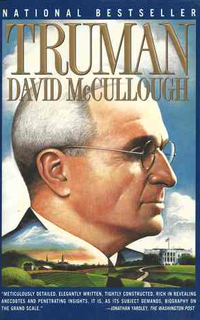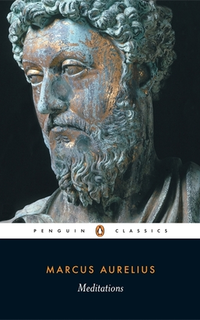Collection
The (Very) Best Books I Read in 2020
My reading list is now ~250,000 people, which means I hear pretty quickly when a recommendation has landed well. I promise you—you can’t go wrong with any of these.
- Curated in The (Very) Best Books I Read in 2020
I’ve raved about some of my favorite epic biographies before: Robert Caro’s LBJ, William Manchester’s Churchill, Gibbon’s Decline and Fall, Well, add another to the list. Taylor Branch’s definitive series on Martin Luther King Jr. and the American civil rights movement has not only been riveting, eye-opening and humbling, it’s been the perfect vehicle to help me understand what’s happening in the world right now. I finished Parting the Waters and immediately picked up Volume II, Pillar of Fire. I’ve come to believe that one of the best ways to become an informed citizen in the present is not to watch the news, but to read history. The actor Hugh Jackman said in an interview a few months ago that he’s been getting his news by keeping his eye on the big picture—going through the Ken Burns catalog and reading books like Meditations. “That’s the way you should understand events and humanity,” he said, “with that sort of 30,000-foot view.” If you want to understand what’s happening in the United States right now as it pertains to race, get off Twitter and read these books. On that note, I re-read Invisible Man, first published in 1952, in light of the killings of Ahmaud Arbery, Breonna Taylor and George Floyd. There are many “anti-racist” reading lists floating around, but how many of the books on those lists will still be readable in 70 years? Do yourself a favor and read this. It’s not going anywhere because it is timeless—and sadly, very timely. I also learned so much from Edward Ball’s Life of a Klansman (and when I interviewed him) and just as much from Albion W. Tourgee’s A Fool’s Errand (Albion was one of the legal advisors in Plessy v. Ferguson). Strongly recommend one or both of these books to anyone who wants to become better informed instead of more partisan. My study of this history has been ongoing, but I feel I have learned far more these books than I have from the trendy white fragility books going around. Also if you’re interested, here’s a step I have taken in regards to Confederate monuments (that is: literal white supremacy monuments, as you’ll learn in these books and some of my interviews on the topic) in my town.
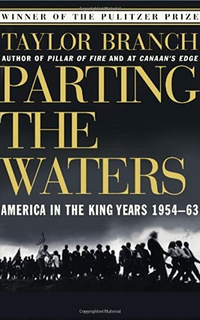
- Curated in The (Very) Best Books I Read in 2020
There is something surreal about reading a book published 15 years ago about an event 100 years ago that just happens to nail exactly what’s happening in this moment (his book Rising Tide: The Great Mississippi Flood of 1927 and How it Changed America is also good and equally timeless.) Barry’s haunting book covers in definitive, gripping detail the Spanish flu: a global pandemic which staggered nations and cities and the brightest medical minds of the time. “It’s only the influenza,” confident officials repeated. “It’ll be over soon,” they reassured. And then the President of the United States caught it… (I’m talking about Woodrow Wilson, of course). Because the more things change, the more they stay the time. Because history is the same song happening on repeat. Anyway, reading this book at the beginning of the pandemic was not only educational, but it has helped shape my family and businesses’ responses to the crisis. Barry writes of the relief people felt when the Spanish flu seemed to be winding down. They thought it was over, but actually only the first wave was done. “For the virus had not disappeared. It had only gone underground, like a forest fire left burning in the roots, swarming and mutating, adapting, honing itself, watching and waiting, waiting to burst into flame.” You cannot relax yet. You cannot drop your shield, as the Spartans would say. You must continue to protect the line. The health of your neighbors depends on it. And I joked in February that I was deliberately not going to read The Road by Cormac McCarthy this book because of the pandemic. In truth, I got it down from my shelf and sat on my bedside table while I worked up the courage to read it again. My feelings were well-founded, because on the night I finished, all I could do was walk quietly into my son’s room and sob while he slept. The Road is just one of the most beautiful and profound depictions of struggle and sacrifice and love ever put down on the page. Worth reading again!
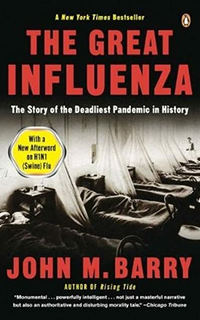
- Curated in The (Very) Best Books I Read in 2020
This is an absolutely incredible book. I think I marked up nearly every page. The book is a study of Abraham Lincoln, Theodore Roosevelt, FDR and Lyndon Johnson, and it is so clearly the culmination of a lifetime of research… and yet somehow not overwhelming or boring. Distillation at its best! I have read extensively on each of those figures and I got a ton out of it. Even stuff I already knew, I benefited from Goodwin’s perspective. This is the perfect book to read right now—a timely reminder that leadership matters. Or as the Stoics say: character is fate. Or as I wrote about in this piece about leadership during the plague in ancient Rome: when things break down, good leaders have to stand up. After Goodwin, I picked up Leadership in War: Essential Lessons from Those Who Made History by Andrew Roberts, who I find to be funny, insightful and quite good at capturing the essence of unique historical figures. I also recommend Roberts’ biographies of Churchill and Napoleon (you can listen to my interview with Roberts here). As I said, now is the time to get perspective and to learn from the past.
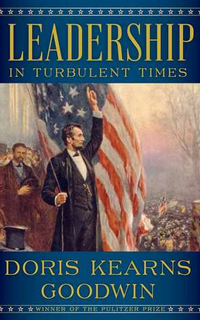
- Curated in The (Very) Best Books I Read in 2020
- Curated in The (Very) Best Books I Read in 2020
- Curated in The (Very) Best Books I Read in 2020
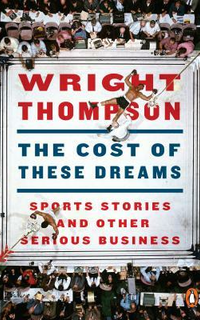
- Curated in The (Very) Best Books I Read in 2020
The best thing I read about writing was Steinbeck’s Journal of a Novel.



